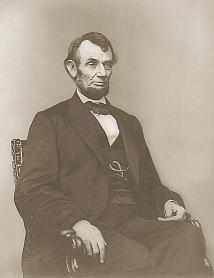Civil War Re-enactors Fight Results in a Draw
I have to include this post, because the story is bizarre.
The Associated Press reports a judge on January 6, 2010 found two Civil War re-enactors (a Johnny Reb and a Billy Yank) not guilty of assault. Seems the two were involved in a re-enactment of the Battle of Stanardsville when their re-enacting became too realistic.
The two were re-enacting as cavalry officers, and Johnny Reb claims Billy Yank knocked his hat off. Johnny Reb then responded by firing his revolver at Billy Yank. Although the revolver had a blank round, Billy Yank was injured. Then the two went on to feed the lawyers.
Here is The Associated Press report:
VIRGINIA
Re-enactors’ spat settled in court
STANARDSVILLE – A judge says it’s a draw between two Union and Confederate re-enactors who got into a tussle on the battlefield.
A judge found each man not guilty of assault on Wednesday after they pressed charges against each other over the dispute last September.
The men were playing cavalry officers in a re-enactment of the Battle of Stanardsville. The Confederate re-enactor claims his Union counterpart knocked his hat off.
The Confederate was accused of responding by firing a blank round from his revolver and injuring the Union re-enactor.
The Associated Press
I’m a fan of Civil War re-enactors. I appreciate and enjoy how they strive to bring history alive for us. If you ever get a chance to see a Civil War battle re-enactment, do it. But, I have to say in my point of view, these two Civil War re-enactors are nuts. To put it in 1800s terms; these two guys are crazy as loons.
To add some actual Civil War history value to this post:
The cavalry fight included charges with sabers clanging at each other, followed by counter-charges and more saber clanging. Custer wound up retreating across the South River at Banks Ford, and then heading north to Culpeper.
